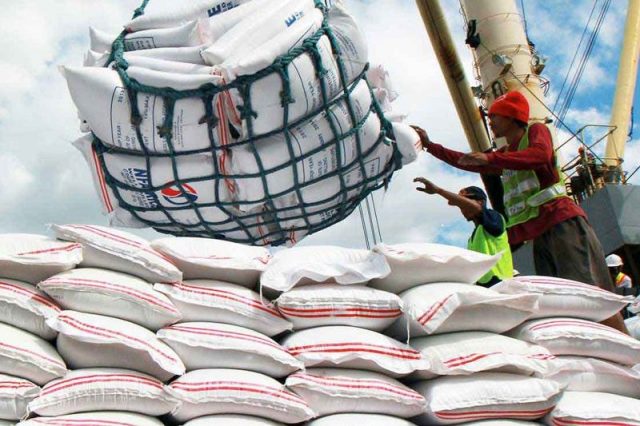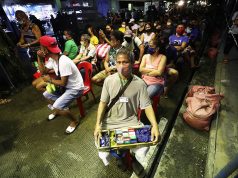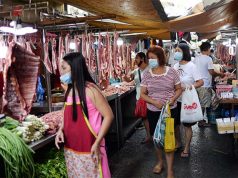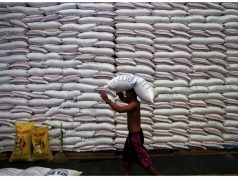- Grains agency proposes govt-to-govt rice import deal
- Imports eyed to boost buffer stocks, curb prices
- Major rice buyer Philippines mainly imports from Vietnam
MANILA— The Philippines’ National Food Authority (NFA) has proposed importing 330,000 tonnes of rice to cover an expected deficit in its buffer stock, as the government seeks to curb the cost of the staple grain and limit upward pressure on inflation.
The state grains agency needs to beef up its buffer stocks for emergency relief operations, but ramping up its purchases from local farmers could push domestic prices higher, the presidential palace said in a statement on Friday.
Domestic rice prices have crept higher, with the cheapest variety now selling at 36-44 pesos ($0.65-$0.80) per kilogram, up from 35-38 pesos at the start of the year, government data showed.
Inflation eased in March to 7.6%, but was still well outside the official 2%-4% target.
The government is now looking at non-monetary measures to address price pressures, while the central bank has signaled a pause in interest rate hikes.
The Philippines’ year-end rice inventory is estimated at 1.69 million tonnes, equivalent to a 45-day buffer stock, just half of the ideal 90-day stock needed to stabilize prices, the statement said.
President Ferdinand Marcos Jr, who is also the agriculture secretary, said he was looking at “all measures” to curb rice prices.
“We will plan if there’s a need to import, to extend and increase the NFA’s buffer stock, which is already too low,” he said.
The NFA is seeking a government-to-government arrangement for the rice importation. At present, only private traders are allowed to import rice, while the NFA’s function has been limited to stocking of the emergency buffer.
Under the law, however, the presidential office or its designated agency can decide to bring in rice for NFA’s stockpiling.
The Philippines is one of the world’s biggest rice buyers, usually importing most of its requirements from Vietnam. It also buys some volumes from Thailand, India and other producers in Asia.
—Reporting by Enrico Dela Cruz; Editing by Ed Davies










